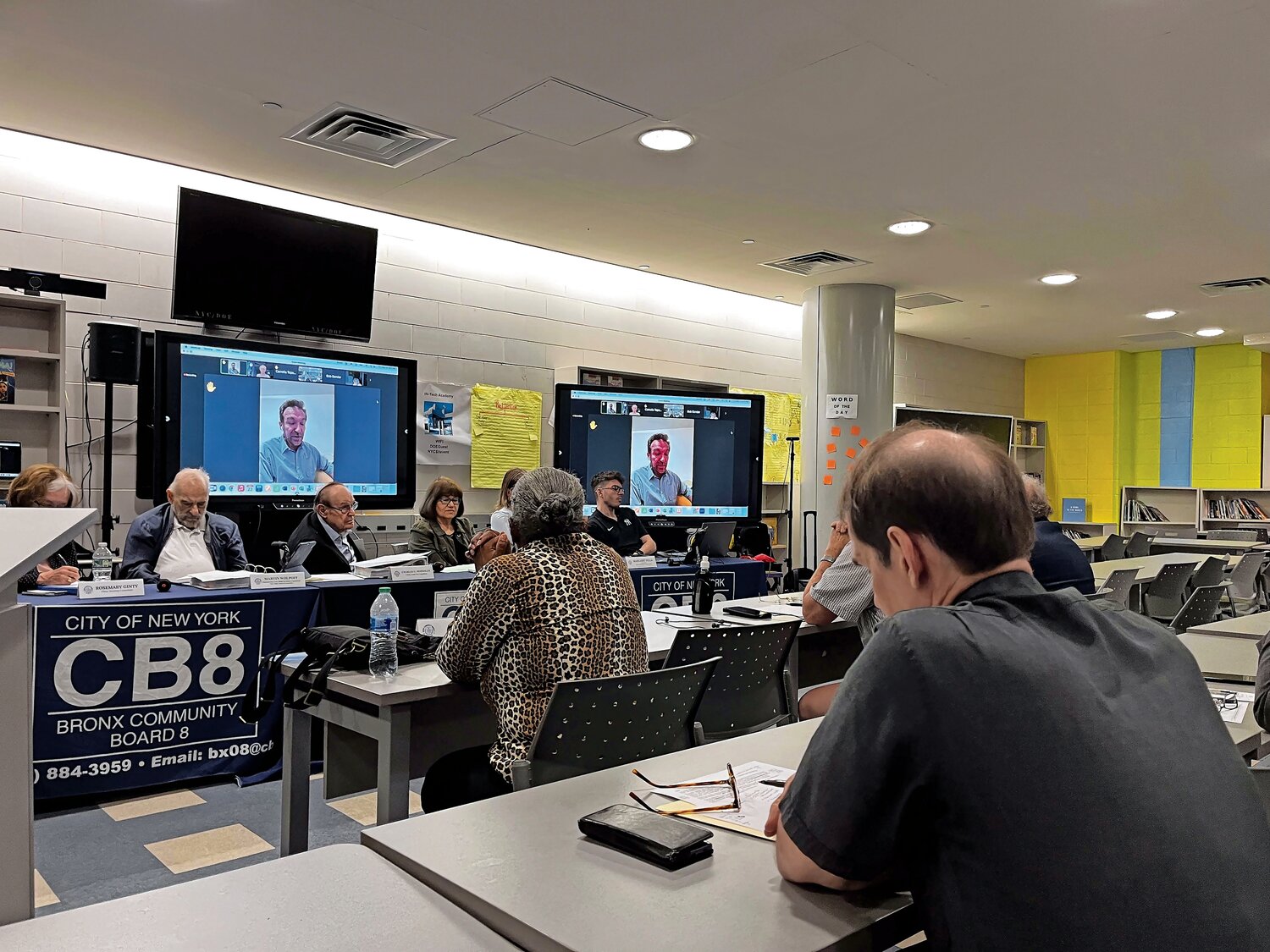Community Board 8 rejects Mayor Adams' housing proposal, citing major flaws
The sentiment was anything but affirmative at the Community Board 8 City of Yes for Housing Opportunity special committee meeting June 17, as Mayor Eric Adams’ proposal was unanimously rejected by the committee, which recommended the City Council do the same.
The special committee, appointed in March and chaired by Chuck Moerdler, was tasked to evaluate the third and final installment of a triptych of new policies under the City of Yes umbrella. The idea behind Adams’ initiative is to gradually increase housing density and, by extention, expanding opportunities for affordable housing.
Theoretically.
The main components of the housing opportunity proposal include new requirements for affordable housing, updating zoning laws to allow for more flexible developments, removing citywide parking mandates, and permitting residences to be built on top of existing ground-level commercial buildings.
The plan has generated significant backlash within the greater Riverdale community, a position echoed in the CB8 report published June 25. The report labeled the plan “fatally flawed” and warned that it would “jeopardize the continued vitality of this and other communities through unbridled and overwhelmingly increased density, unsafe and hazardous conditions and circumstances.”
During the meeting last week, specific shortfalls of the mayor’s proposal were identified. The most pressing concern was skepticism regarding the plan’s potential to genuinely support affordable housing. Critics argued the proposal relied on an outdated definition of affordable, which did not accurately reflect the current economic realities of most New Yorkers.
Within the greater Riverdale community, City of Yes represented a markedly higher figure than the area median income — “up to $178,000 per annum” — as a ceiling for affordable housing.
The committee suggested this misjudgment would primarily benefit wealthier residents whose incomes fell at the high end of this bracket, instead of truly serving those in need. There was also no provision, the committee found, to ensure these units, once built, would remain affordable in the long term, raising fears of future rent increases and potential displacement.
Another point of contention was the proposal’s open invitations to developers and homeowners to add secondary dwellings in basements and backyard cottages, which the mayor’s proposal says will encourage the growth of intergenerational households.
Committee members feared these invitations would, in reality, invite abuses at the expense of lower-income homeowners and create potentially overcrowded housing developments without adequate infrastructural support, citing the Webb – Claflin Avenue sections of Kingsbridge Heights as a recent example.
The City of Yes proposal’s impact on existing affordable housing stock and support for homeless populations raised another red flag. The committee noted the plan did not include any measures to maintain or improve existing affordable housing units. Additionally, it was unclear how the plan would support homeless members of the community. Without specific provisions for integrating supportive services or creating pathways out of homelessness, the proposal was criticized for its neglect of those in the most imminent need of housing.
Annemarie Grey, executive director of the housing advocacy nonprofit Open New York, expressed a more optimistic view. She said she believes, at the core of all housing issues, including homelessness, lies a deep housing scarcity. Grey suggested the City of Yes housing proposal is the first comprehensive citywide housing strategy in decades — and rejecting it outright could hinder the city’s incremental progress.
“We have to recognize that we can’t instinctively say no when we’re in such a dire crisis,” Grey said, “and we need even more proposals that continue to address these needs in new ways.”
While the proposal was roundly rejected by CB8 on the grounds that greater measures are needed to prioritize those in the greatest housing need, Gray said there is no single solution, and creating a truly inclusive and effective housing strategy for New York City will be decades in the making.






